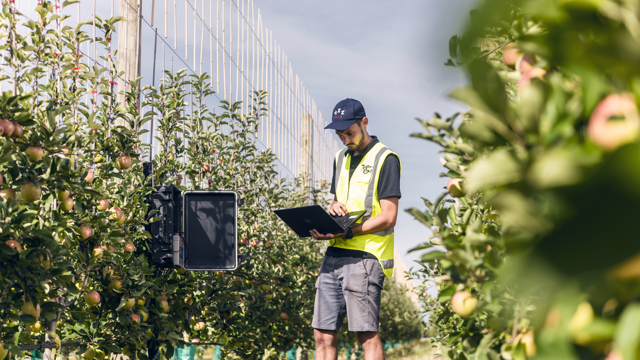

Apple and pear industry prepares for greener future
Aotearoa’s apple and pear industry has taken a significant step forward to becoming even more environmentally sustainable thanks to the development of a life cycle analysis (LCA) for a kilo of exported apples.
The industry released a baseline assessment to ensure the already low impact industry can continue its focus on, and reduction of, carbon emissions.
Assessing the environmental impacts of one kilogram of exported apples, the LCA tracks apples from ‘cradle’ (the orchards) through to ‘grave’ (consumption and disposing of packaging).
The great news for growers is that the study determined the more productive an orchard was, the lower the carbon footprint. Four other focus areas have been identified for improvement including packaging, water use, energy and transport.
The science-based research is designed to guide industry to make informed decisions on sustainable development, while also identifying 'hotspots' in the value chain that contribute significantly to environmental impacts.
There is currently no standard comparison for environmental impacts in the fresh produce sector, despite a growing need, so comparisons between fruit varieties and countries can’t and shouldn’t be made, says NZAPI Chief Executive Karen Morrish.
“Growers across New Zealand take their role of caring for the whenua (land) seriously. Our industry is future-focused; already low impact, growers seek sustainable and environmentally friendly innovation when faced with challenges, but unless we have a benchmark to measure ourselves against, we will never know where to begin and whether new solutions are making a difference,” says Morrish.
“This baseline acts as a guide to support industry to be more environmentally aware and sustainable. It will also help growers and businesses explain, communicate and manage environmental performance with their teams, business partners and customers. It’s about comparing (New Zealand) apples to (New Zealand) apples, and ensuring our industry is doing the very best we can.”
Apple lovers can also have a direct influence on the carbon impact of an apple by using correct disposal of fruit waste and packaging, says Morrish.
“Consumers now demand environmentally friendly practices from their favourite produce and brands, and apples are no different.”
The release of the LCA is also timed with the distribution of a Future Focused Orchards guide.
The vision and concept of 'Future Focused Orchards’ was developed in partnership with local growers, international leaders, and local mana whenua to co-design an industry vision of key practices and opportunities that reduce harm and deliver health and prosperity to the industry, improving environmental, social and economic outcomes.
